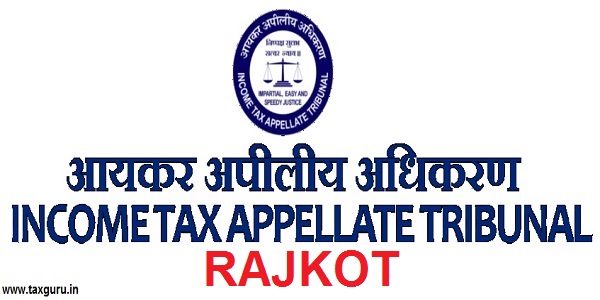Case Law Details
Section 164 gets attracted only when the shares of the beneficiaries are unknown, which is manifest from the marginal heading of that section itself; so long as the trust deed gives the details of the beneficiaries and the description of the person who is to be benefited, the beneficiaries cannot be said to be uncertain, merely because wife/children cannot be known until the marriage and begetting of children by the stated beneficiaries.
RELEVANT PARAGRAPH
17. Section 164 of the Act gets attracts only when the shares of the beneficiaries are unknown, which is manifest from the marginal heading of that section itself, viz., Charge of tax where the share of the beneficiaries unknown. That section comes into play only where any income or any part thereof is not specifically receivable on behalf of or for the benefit of any one person or where the individual shares of the persons on whose behalf or for whose benefit such income or such part thereof is receivable are indeterminate or unknown, and in such case, the relevant income, or part of the relevant income shall be charged at the maximum marginal rate.
18. From this, it is clear that in order to attract section 164(1) of the Act, the beneficiaries on whose benefit, such income or such part thereof is receivable are indeterminate and unknown.
19. Coming to the facts of the case, as stated earlier, the beneficiaries are five in number for the period from 01.04.1986 to 31.03.1989 and the respective share of each beneficiary is in different percentage as stated in the deed itself. From 01.04.1989 onwards the beneficiaries are seven in number and their shares in the income is equal. The shares in respect of 6th and 7th beneficiaries are equal in the status of individual till the date of their marriage and separately in the status of the individual and Hindu Undivided Family consisting of themselves and their respective wife from the date of marriage. As per clause 3(b)(i) as and when Badri and Prabhakar are married, their spouses would automatically become beneficiaries along with the other continuing beneficiaries in the said accounting year and subsequent accounting years and equally divide the beneficial interest in income of the aforesaid beneficiaries. Likewise, as and when any child or children is/are born to the said Badri and Prabhakar the child or children so born shall automatically become a beneficiary/ beneficiaries along with the other continuing beneficiaries in the said accounting year and subsequent accounting years and equally divide the beneficial interest in income of the aforesaid beneficiaries. From the above, it is clear that the shares of the beneficiaries is equal and as and when the two stated beneficiaries get married, they become HUF and on the birth of child/children, it or they also become the beneficiaries. With the increase of numbers, the share of each person gets reduced. So, the share income is determinate.
22 From the facts of the present case and from the terms of the trust deed, we find that the intention of the author of the trust cannot be said to be uncertain. The shares of the beneficiaries are stated to be equal and in case the unmarried beneficiaries get married and begetting children, they would also become the beneficiaries and with the increase in the number, shares of each person can be reduced. So long as the trust deed gives the details of the beneficiaries and the description of the person who is to be benefitted, the beneficiaries cannot be said to be uncertain, merely because wife/children cannot be known until the marriage and begetting of children by the stated beneficiaries. The deed also provided that in the event of death of a beneficiary what should be done. The above view of us is fortified by the decision of this Court in the case reported in 147 ITR 500 referred to supra.
26. Hence, having regard to the terms of the trust deed, which clearly prescribes the beneficiaries and the shares they are entitled to and other terms relevant to the share of interest in the corpus on determination or termination of the trust, we are of the considered view that section 164 of the Act is not attracted.





















